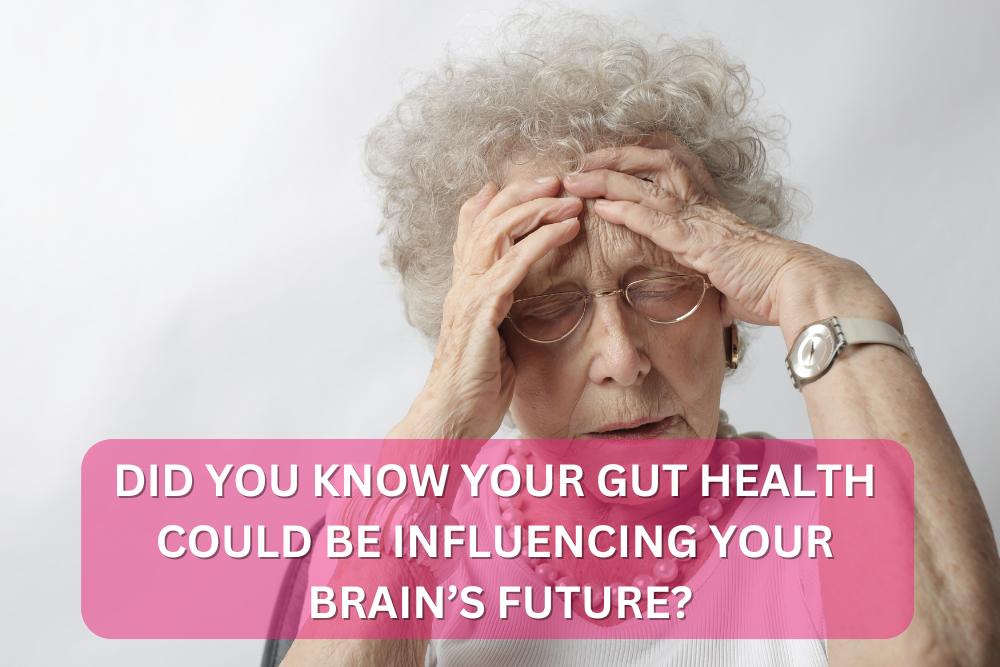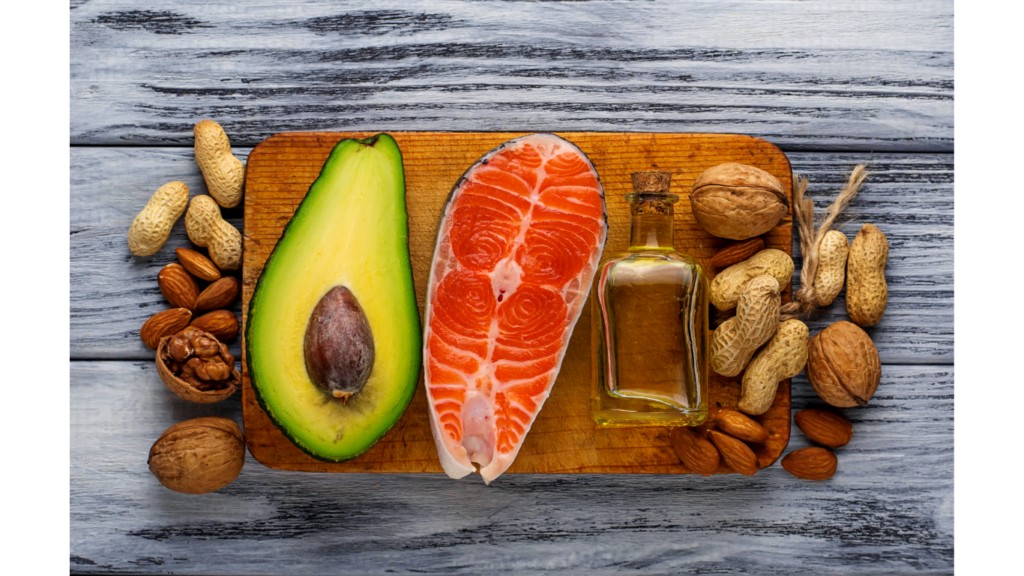How Your Digestive Health May Impact Alzheimer’s Disease Risk

Discover the fascinating link between your gut health and cognitive function from award-winning UK dietitian Gillian Killiner. Drawing from 30 years of clinical experience and groundbreaking research, learn how specific gut bacteria influence brain health and may help prevent Alzheimer’s disease. From beneficial bacterial strains to practical dietary strategies, this evidence-based guide reveals how to support your cognitive wellness through gut health. Featuring real client success stories and actionable steps you can take today. Book your consultation at 121 Dietitian’s Hollywood clinic or online to start your journey toward optimal brain health through personalised nutrition.
How to Improve Gut Health in the UK

Understanding Gut Health Gut health is a very common concern that Gillian Killiner, our 121 gut specialist award winning Dietitian is asked to assess by Drs, Consultants, AHPs and patients who self-refer. She treats many every day, whether it be through online consultations or face-to-face in her clinic. If you’re not familiar with the concept of gut health, don’t worry! It’s a broad topic that encompasses various aspects related to different parts of the body, in addition to the gut itself and in the next few blogs we hope to cover these areas in more detail so you can get a better understanding. Gut Bacteria The gut microbiota, also known as gastrointestinal bacteria, is a diverse community of microorganisms that reside primarily in a part of the large bowel known as the colon, which is part of the digestive tract. This community includes bacteria, viruses, fungi, and other single-celled organisms. The gut microbiota plays a crucial role in various aspects of human health, and its composition can vary among individuals. A healthy gut not only strengthens our immune system but also supports the well-being of essential organs like the heart and brain. Moreover, it positively influences mood, fostering happiness and satisfaction. We know that when the gut is not balanced health is compromised at many levels. How are we able to assess our gut bacteria? Research into gut bacteria has been conducted since the invention of the microscope around 1665. Over the past 30 years, there has been a significant leap in this field, thanks to the sequencing of small molecules of life, including DNA and eventually RNA. What is Gut Health? The term “Gut health” is the umbrella term for various health conditions including : GERD Irritable bowel syndrome Hemorrhoids Coeliac disease Gallstones Constipation Diverticulitis Gastritis Ulcers Colorectal cancer Diarrhoea Gastrointestinal infections Liver disease Pancreatitis Esophageal cancer Gastroparesis Years of research and work in practice link these conditions to our gut bacteria whether as a direct cause, preventative or used as a treatment. In addition extensive research has also been linking the vital organs like brain, heart, liver, skin to our gut bacteria and how imbalances in the gut microbiota can lead to increased intestinal permeability or “leaky gut,” allowing harmful substances to enter the systemic circulation and burdening liver function. We know the health of our skin is closely linked to our gut health due to their shared immune system involvement. Research indicates that disruptions in the balance of intestinal flora may contribute to skin conditions like acne, eczema, psoriasis, rosacea, and dermatitis. The gut-brain axis is a bidirectional communication system between the brain and the GI tract. Treating the gut can directly assist mental health and well-being. Our Gut Health Programme is adapted to suit all gut health issues and more. Excellent Gut Health Ensuring excellent gut health at every age is crucial for overall wellness. An effective digestive system also promotes efficient nutrient digestion and absorption, which subsequently enhances sleep quality. Hence, giving priority to gut health is highly recommended. × Dismiss this alert. Dietitian’s Role in Managing Digestive Disorders A dietitian plays a crucial role in managing digestive disorders by providing tailored nutritional guidance to alleviate symptoms, promote digestive health, and improve overall well-being. Our 121 Gut Health Programme has helped thousands of people not only regain control of their bowel symptoms and health but also improve their sleep, mental clarity, weight and other health issues. How does 121 Dietitian work to improve Gut Health? At 121 Dietitian we work closely with other healthcare professionals to aid in the diagnosis and treatment of digestive disorders. We perform detailed individual assessments take a deep dive into the detail in our 60-minute consultation before writing up a detailed bespoke plan, supplement and lifestyle protocol. Before attending an appointment, our patients are required to log in to our online Portal to complete our background questionnaire and Food and Symptoms Diary. This part of the programme is completely free of charge and allows one of our specialist dietitians to direct you to select the correct programme. The programme includes a 30-minute review to ensure the programme has been successful and provide further nutritional advice and guidance as part of the programme requirements. Mairead AdamsGoogle Review Read More After having COVID at the end of 2022 I suddenly developed allergies to Milk products and intolerances to other foods. My Gastroenterologist recommended I see Gillian, who put me on her low Fodmap Programme at the end of September and I am now at the Reintroduction Stage. Since commencing the Programme, my bowel movements and general health have improved dramatically. I sleep better and a number of my aches and pains have gone. After having diarrhoea for 9 months, effectively, I can now go out and about without that worry of knowing if I will be close to a toilet and if I will be able to get there on time, to constantly carrying Immodium, just in case. The peace of mind this has given me is enormous, never mind that I now feel more like a ‘normal’ person. I still have to watch what I eat, especially in relation to my milk allergy, which may take a bit longer to ‘fix’, if it can be fixed. However, the change in me is amazing and I am extremely grateful to Gillian for her time, advice and patience in getting me to this point. Thank you Gillian. How a Specialist Dietitian can fix your Gut… Specialist gastrointestinal Dietitian Gillian Killiner brings her 26 years of dietetic experience to help each patient she sees. Her deep dive is extensive – here are just some of the areas covered…. Fibre Management We guide patients on appropriate fibre intake, considering the type and amount of fibre that can aid in digestion without causing discomfort. Food Allergies and Intolerances We identify and address food allergies or intolerances that may contribute to digestive issues.Recommend suitable alternatives to replace problematic foods. Hydration We emphasise the importance of adequate
Finding the Right Nutritionist Near You: A Guide to 121 Dietitian

Gillian Killiner 121 Dietitian
How to Lose Weight for Good

Effective Fat Loss Tips and Advice Introduction Hey everyone, this is the month to lose weight if you need and can! Yes you heard it! I have written about this countless times in blogs, magazines, papers and spoken on YouTube so apologies if you have heard this before, but I feel the New Year is not always the best time to embark on weight loss. It is a time of post stress, irratic blood sugars, low mood, no money, poor light, cold…. The time you want to stay warm and de-stress and nourish yourself physically and mentally. I strongly encourage after the summer months to refocus and commence a positve change. Did you know It takes 21 days to embed a new routine. How many embark on numerous weight loss journeys in January, only to find you are trapped in a cycle of losing and gaining weight, with little long-term success and give up by February. It’s a frustrating and disheartening experience that has I know left countless individuals feeling defeated. SO in this blog post, I aim to shed light on a different approach – one that is sustainable, enjoyable, and designed to help you lose weight for good. Do check out my YouTube Video on this very topic also. https://www.youtube.com/watch?v=nCXxQzxWpFs The Fear of Weight Loss I know many of you dread changing your diet to lose weight because you associate it with tasteless, unappetizing food? Others start a new diet regimen every morning, only to feel like a failure by bedtime. If this resonates with you you are not alone in these feelings. Many people have good intentions when it comes to weight loss, but they often encounter challenges that prevent them from achieving lasting results. The key is to recognize that weight loss doesn’t have to be a daunting experience; it can be a manageable and enjoyable part of your life and when you get it right, it should be flexible to work with you for good. The Pitfalls of Counting Calories and Macros to Lose Weight One common misconception about weight loss is the need to meticulously count calories and macros (macronutrients like protein, fat, and carbohydrates). While it’s essential to have a general understanding of your dietary intake, obsessively tracking these values is neither required nor sustainable in the long term. Constant monitoring can lead to frustration and dissatisfaction, taking away from the joy of eating and making it feel like a never-ending journey. Weight management should be a lifelong commitment, not a short-lived obsession. Learning takes time and so does long term successful weight loss. Commercial Weight Loss Programs – Do They Work? Commercial weight loss programs/products have their place in the industry and may yield short-term success for some individuals who are at high risk to get them to a safe place. However, for those who really don’t need them, they can trap you in a cycle of dependency on their products and quick fix guidance. Over time, this reliance can lead to a bigh expense and if not teaching you about real food will still ensure you have a lack of understanding over dietary choices -perfect for making it more confusing and leave you with no control. The initial results with any diet change can give results, but if extreme they can be very hard to maintain without supervision. We see this time and time again here at 121 Dietitian, many people come to us having regained the weight they lost and more and no idea what to do next. It’s essential to explore alternative approaches that empower you to take control of your health. Yo-Yo dieting is a NO-NO. Preparing for a Sustainable Weight Loss Journey Before embarking on a weight loss journey, it’s crucial to prepare yourself mentally and practically. Avoid falling into the trap of quick-fix solutions, as they often result in muscle loss and metabolic slowdown. Instead, set aside at least two months of your life when you can fully commit to changing your eating habits and lifestyle. This period should be free from major life changes like moving, changing jobs, or planning significant events like weddings. Sustainable weight loss requires a gradual, thoughtful approach and Autumn can be one of those perfect times. Understanding the Factors Behind Obesity Weight management is not solely about controlling your appetite and calorie intake. Several factors contribute to obesity, including your environment, emotions, impulsiveness, and early life experiences. Your surroundings play a significant role in your dietary choices. In our workd today we have a toxic environment filled with temptation. Fast food and processed snacks can lead to unhealthy habits, while a supportive environment can foster better choices. Our programmes guide you through the various trigger areas to tackle and allow you to get to a sustainable place without feeling one bit deprived. Expanding Your Food Choices to Lose Weight In a world with an abundance of food options, it’s still easy to fall into a routine of repetitive, restricted eating. Many individuals unknowingly limit their choices to a narrow range of foods, often favouring processed, unhealthy options. You may be surprised to learn that this could be becuase your gut bacteria is in control!! It’s essential therefore to broaden your palate and embrace a diverse range of nutritious foods. Start by making a list of your likes and dislikes, and identify areas where you can incorporate healthier alternatives or develop a taste for nutritious options. We would love to help you with that. Keeping a Food Diary Maintaining a food diary can be a valuable tool on your weight loss journey. In addition to documenting your meals, include details about your activities, sleep patterns, mood, and energy levels. A comprehensive diary helps you gain insight into your eating habits and their impact on your overall well-being. It serves as a mirror, reflecting your daily routine, making it easier to identify areas for improvement. You can complete a 7 day food diary and submit this alongside our questionnaire, this is
PCOS – Assisting Women with PCOS through Nutrition and Lifestyle

PCOS affects 1 in 10 women. As a seasoned Consultant Dietitian with 26 years of experience, I have had the privilege of assisting numerous women on their path to improved health, fertility, and well-being. Among the many conditions I’ve encountered, Polycystic Ovary Syndrome (PCOS) has been an unexpected daily focus that is so often poorly managed, and my journey in supporting women with PCOS has been nothing short of rewarding and life-changing. Through the power of nutrition and lifestyle adjustments, I’ve witnessed heart-warming transformations in these women’s lives, culminating for some, the best health physically and mentally they could have, or for others the joyous arrival of new-born babies and thriving pregnancies. Understanding PCOS: A Complex Journey Polycystic Ovary Syndrome is a complex hormonal disorder that affects a significant number of women worldwide. The exact cause of PCOS is unknown, but it often runs in families. It’s related to abnormal hormone levels in the body, including high levels of insulin. There are a multitude of subtle and obvious symptoms. Medically identifed by irregular menstrual cycles, excessive androgen levels, and multiple fluid-filled sacs (follicles) that are seen in the ovaries around the egg stopping its release, Not all PCOS symptoms have to be present for a diagnosis. PCOS can often lead to various challenges, such as weight gain, hair loss, acne, insulin resistance, and difficulty conceiving. Acknowledging the Multifaceted Approach to PCOS Over the years, I’ve worked on addressing PCOS with a multifaceted approach and created a programme that provides ther right support. There is no one-size-fits-all solution, and each woman’s journey is unique. My approach to supporting women with PCOS involves personalized dietary strategies, lifestyle modifications, and ongoing support all tailored to suit individual needs. Click here to read more about our bespoke programmes for PCOS. The Role of Nutrition in PCOS Management Nutrition serves as the cornerstone of PCOS management, it is amazing when using the right foods how powerful they are to heal and nurture the body. Through custom-tailored plans, we guide our clients towards making informed food choices that promote hormonal balance, reduce inflammation, and support weight management. Emphasizing whole, nutrient-dense foods, and striking a balance between macronutrients is key in promoting steady blood sugar levels and curbing cravings. Nourishing Hormonal Balance in PCOS Balancing hormones lies at the heart of PCOS management. Incorporating foods that promote hormone regulation eg fatty acids, and antioxidants can be transformative. Additionally, we ask our patients to visit their GP for a list of blood tests and from this address any concerns with diet and supplements if required. We provide each patient a bespoke programme which encourages clients to address their diet with ease and enjoyment and ditch the foods that contribute to hormonal imbalances. The Low Glycemic Impact One essential aspect of our nutritional recommendations for PCOS revolves around adopting a low glycemic approach. By choosing carbohydrates that release sugar gradually into the bloodstream, we can manage insulin levels more effectively, reducing the impact of insulin resistance commonly associated with PCOS. Recipes, plans and shopping lists provided make this easy and enjoyable. Embracing a Healthy Lifestyle Beyond nutrition, lifestyle choices play a crucial role in managing PCOS and enhancing hormone regulation. Physical activity is a powerful ally, improving insulin sensitivity, and assisting weight. We work closely with clients to develop activities that are enjoyable and sustainable, ensuring they stay committed to their health goals. Stress Reduction for Hormonal Harmony Reducing stress is vital in the management of PCOS. Chronic stress can exacerbate hormonal imbalances and lead to emotional eating or unhealthy coping mechanisms. Our clients learn to manage stress and dial into their emotional well-being. Celebrating Success: Joyful Outcomes for PCOS The most gratifying aspect of my work especially is witnessing the success stories of the women I’ve supported on their PCOS journey. Many of them have overcome the odds, improved their health, and if so desired successfully conceived. It makes me so happy to see these women embark on a new chapter of their lives with confidence and vitality and if pregnancy the end goal see the new little babies I have helped become reality! Conclusion My 26-year journey as a Dietitian has been defined by my passion for empowering women with all health issues. This was really accelerated after experiening a health crisis myself see (Gillian’s story). The transformative power of nutrition and lifestyle is not to be underestimated, throwing medications at conditions may seem a good option but does not always fix the route cause. Witnessing patients triumphs and sharing in their joy as they get back in the driving seat has been a big highlight of my work. As I continue to champion the cause of women’s health, I remain committed to the pursuit of holistic and personalized solutions that nurture the body and the mind. Thankfully PCOS can be treated, and once on the correct path, the boundless potential of life and fertility that lies within every woman can be unlocked. So, what to do next or for anything else.. If you are needing help with your diet and health or anything else… we can assist you with this. Maybe you wish to change your eating habits, create a nutrition plan or need help optimising the foods you eat to assist your hormonal health or your sugar addiction and are not sure what programme to select, please do contact us. We would love to help you or your family and friends with any nutrition-related queries big or small. If you want to book your programme TODAY we would love to help you. You can book a 121 Dietitian Programme today by clicking on the link below If you have enjoyed this blog we would love you to share this with your family and friends on your social media channels. Do visit our YouTube Channel for more on keeping your health optimal. If you are interested in how I overcame my Thyroid Autoimmune Condition do check out the About section below Before you go please check out our 121 Dietitian Shop
Aspartame: Insights from a Specialist Dietitian

Aspartame what is all the fuss about? As a dietitian with over two and a half decades of experience, I have always prioritized the well-being of my clients and promoted a balanced, healthy diet for each individuals needs, health, likes and dislikes etc. Throughout my career, I have encountered numerous questions about artificial sweeteners, particularly aspartame. In this blog, I would like to share my perspective on aspartame and explain why I prefer to steer clear of artificial sweeteners. What is Aspartame? Aspartame is an artificial sweetener that has been widely used as a sugar substitute in various food and beverage products. It is found in many sugar-free or “diet” options, such as soft drinks, chewing gum, and desserts. Aspartame is a synthetic substance that combines two ingredients: 1. Aspartic acid. This is a nonessential amino acid that occurs naturally in the human body and in food. Amino acids are the building blocks of protein in the body. The body uses aspartic acid to create hormones and to support normal function of the nervous system. Dietary sources include meat, fish, eggs, soybeans, and peanuts. 2. Phenylalanine. This is an essential amino acid that’s naturally present in most protein sources, but the body doesn’t produce it naturally. Humans have to get it from food. The body uses it to make proteins, brain chemicals, and hormones. Sources include lean meats, dairy products, nuts, and seeds. Combining these two ingredients creates a product that is about 200 times as sweet as regular sugar. A small amount can make food taste very sweet. It also provides very few calories. While aspartame is approved for use by regulatory authorities in many countries, its safety and health effects have been a topic of debate and scrutiny. The World Health Organization (WHO) has recently issued a new guideline regarding non-sugar sweeteners (NSS). According to this guideline, the use of NSS is not recommended for weight management or as a means to lower the risk of noncommunicable diseases (NCDs). Based on a thorough review of the available evidence, it has been found that (NSS) do not offer any long-term benefits when it comes to reducing body fat in both adults and children. The review’s findings indicate that prolonged use of NSS may have unintended consequences, including a higher likelihood of developing type 2 diabetes, cardiovascular diseases, and increased mortality rates among adults. Replacing free sugars with non-sugar sweeteners (NSS) may not be effective in achieving long-term weight control. According to Francesco Branca, WHO Director for Nutrition and Food Safety, it is important for individuals to explore alternative methods of reducing their consumption of free sugars. This can include opting for food options that naturally contain sugars, such as fruits, or choosing unsweetened food and beverages. Non-nutritive sweeteners (NSS) are not considered necessary for a balanced diet and do not contribute any significant nutritional value. It is recommended that individuals reduce their overall intake of sweeteners from an early age in order to enhance their overall health and well-being. (WHO 2023) Why I suggest avoidance of Aspartame and others Conclusion: After practicing as a dietitian for 26 years, I have witnessed time and time again patents coming to me with the highest intakes of artificial sweeteners struggling the most with their diet, weight, physical and mental health. Once they start to follow one of my programmes these problems are quickly resolved. (if interested do check out my google and facebook reviews) I am glad I have not wavered when others have challenged me and I have stood by my decision to not recommend artificial sweeteners, including aspartame. While aspartame may be deemed safe for consumption within approved limits, why risk it. We need more ‘high’-quality research to further assess these relationships. I will continue to educate people to prioritize a whole-food, nutrient-dense approach to healthy eating. By choosing natural alternatives and educating clients about the importance of mindful eating and moderation, I believe we can foster a healthier relationship with food that supports long-term well-being. So, what to do next or for anything else.. If you are needing help with your diet and health or anything else… we can assist you with this. Maybe you wish to change your eating habits, stop tracking or need help optimising the foods you eat to assist your mental health or your gut symptoms and are not sure what programme to select, please do contact us. We would love to help you or your family and friends with any nutrition-related queries big or small. If you want to book your programme TODAY we would love to help you. You can book a 121 Dietitian Programme today by clicking on the link below If you have enjoyed this blog we would love you to share this with your family and friends on your social media channels. Do visit our YouTube Channel for more on keeping your health optimal. If you are interested in how I overcame my Thyroid Autoimmune Condition do check out the About section below Before you go please check out our 121 Dietitian Shop created specifically for optimising your health. Gillian x